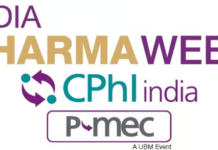Mumbai, June 14, 2016: The World Health Organization (WHO) estimates that, of the 529,000 maternal deaths occurring every year, 136,000 or 25.7% take place in India (one Indian woman dies every 5 minutes from complications during pregnancy and childbirth). In fact two-thirds of maternal death occur after delivery, postpartum hemorrhage being the most commonly reported complication. The incidence of emergency postpartum hysterectomies is about 83/100,000 with a maternal mortality of 17.7% and a perinatal mortality of 37.5%.
As a result of high PPH incidence in India, it is unlikely that India will achieve the Millennium Development Goal (MDG) 5 that is focused on reducing maternal mortality and achieving universal access to reproductive health care. The latest estimates of maternal mortality rate (MMR) in India, from 2011 to 2013, show a national average of 167 deaths/100,000 live births. The same estimates also demonstrate that wide geographical disparities persist. The highest MMR can be found in Assam, where it is 300, and the lowest in Kerala, where it is 61. (Source: Central Bureau of Health Intelligence, Directorate General of Health Services, Ministry of Health and Family Welfare, Govt. of India, Table 1.2.9).
Speaking on the occasion of World Blood Donor Day, Dr. Klaus Goerlinger, Senior Consultant for Anaesthesiology, Intensive Care and Emergency Medicine, University Duisburg-Essen, Germany, said:India is making progress towards reduced maternal mortality and improved access to reproductive health care. This high maternal death rate remains a major challenge for the Indian health system – in particular since more than 90% of these maternal deaths are preventable. Our collaboration with Vijyoti will help introduce ROTEM as an integral technology to patient blood management in India, one that will allow for point-of-care decisions for blood transfusion to be the last resort and not the first option to manage bleeding.”
Blood is in chronic short supply in India, according to the World Health Organization (WHO), which stipulates that every country needs at least a 1% reserve. India, with its population of 1.2 billion people, needs 12 million units of blood annually but collects only 9 million – a 25% deficit. Globally, there are innovations in the field of patient blood management, whereas in India awareness on patient blood management has been overlooked thus far.
ROTEM – The Optimal Haemostasis Analyser is the first choice solution for doctors globally in detecting, managing and monitoring haemostasis in postpartum haemorrhage, cardiac surgery, liver transplant and trauma patients. The analyzerprovides precise results within 5-10 minutes, whereas standard laboratory testing takes up to 40-60 minutes. The technology allows for targeted therapy to be provided at the point-of-care (POC).
Corporate Comm India (CCI Newswire)























